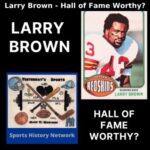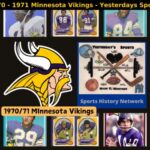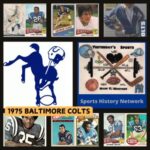From 1939 to 1954, the Brooklyn Dodgers had only one losing season and won five National League Pennants. However, they had yet to claim the coveted World Series Trophy. After finishing second in 1954 with a 92–64 record, expectations were high for the 1955 season.
The Dodgers boasted one of the most impressive starting lineups in baseball. Catcher Roy Campanella, first baseman Gil Hodges, second baseman Jim Gilliam, shortstop Pee Wee Reese, third baseman Jackie Robinson, left fielder Sandy Amoros, center fielder Duke Snider, and right fielder Carl Furillo. Don Newcombe led the pitching staff. Five of these nine players were inducted into the Baseball Hall of Fame. Jackie Robinson won the NL MVP in 1949, Roy Campanella in 1951, and again in 1953.
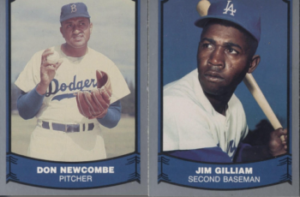
1955 Brooklyn Dodgers
The Dodgers began the 1955 season like a team on a mission, winning ten consecutive games and scoring 70 runs. After dropping two of the next three games, they responded with an eleven-game winning streak, raising their record to an impressive 22 wins and two losses. They eventually slowed down, and by the end of May, they stood at 32–11. In June, the Dodgers won twenty of 28 games, pushing their record to 52–19 and increasing their first-place lead to thirteen games.
They faced a brief struggle at the start of July, losing 7 of 13 games before the All-Star break. Roy Campanella, Gil Hodges, Don Newcombe, and Duke Snider made the All-Star team. By the end of the month, they had rebounded with a 71–32 record and a 13½ game lead.
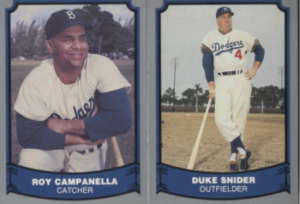
With only fifty games remaining in the season, the Dodgers shifted into cruise control, winning 27 and losing 23. They finished the season with a 98-55 record, 13 and a half games ahead of the second-place Milwaukee Braves. Interestingly, the only team that challenged the Dodgers during the season was the fifth-place Cincinnati Reds, who won ten of the twenty-two games they played against each other.
Roy Campanella led the team with a batting average of .318. Carl Furillo batted .314, followed by Duke Snider, who hit .308. Snider also led the team in RBIs with 136, followed by Campanella with 107, and Gil Hodges with 102. Snider also topped the club in home runs with 42. Campanella had 32, Hodges 27, and Furillo 26. Don Newcombe finished the season with a 20–5 record and a 3.20 ERA. He also contributed offensively, hitting seven home runs with a strong .359 batting average. Campanella narrowly defeated Duke Snider to win the coveted NL MVP award.
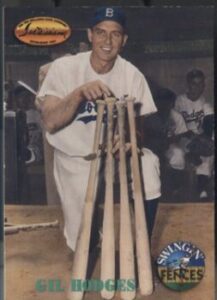
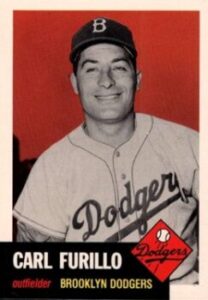
1955 World Series
For those who don’t know, there were no playoffs in MLB until 1969. A playoff game only happened if there was a tie for first place. There were no divisions either. The teams with the best records in the National League and American League faced off in the World Series.
The New York Yankees won the 1955 American League Pennant with a 96–58 record. From 1941 to 1953, the Yankees and Dodgers faced each other in the World Series five times, and the Yankees won all five.
This would be Brooklyn’s eighth World Series appearance, and they had yet to win one. Fans of the team affectionately called the Dodgers “Dem Bums,” and the rallying cry was “wait till next year.”
Game one took place at Yankee Stadium and featured two of the best pitchers in baseball. Don Newcombe started for the Dodgers, with Whitey Ford going for the Yankees. The Dodgers took the lead first when Carl Furillo hit a solo home run in the top of the second inning. Jackie Robinson hit a triple and was driven in by Don Zimmer. However, the Yankees tied the game when Elston Howard hit a two-run home run.
Duke Snider put the Dodgers ahead 3–2 with a home run in the top of the third. Irv Noren tied the game for the Yankees with an RBI groundout. In the bottom of the fourth, Joe Collins put the Yankees ahead with a solo home run. Collins hit another homer in the sixth inning with a man on base, increasing the lead to 6–3. In the eighth inning, Don Zimmer hit a sacrifice fly, reducing the deficit to 6–4.
Next, Jackie Robinson stole home to make it 6–5. Until his dying day, Yogi Berra insisted Robinson was out. In the top of the ninth, Bob Grim came in to relieve Whitey Ford and shut down the Dodgers, securing the victory for New York.
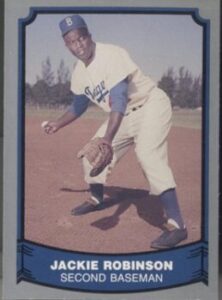
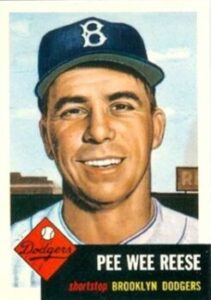
After three full innings, game two was tied at zero. In the top of the fourth inning, Pee Wee Reese hit a double and was brought home by Duke Snider. However, the bottom of the fourth wasn’t good for Dodgers pitcher Billy Loes. Elston Howard, Billy Martin, and pitcher Tommy Byrne combined to drive in four runs.
Loes was taken out of the game, and the Dodgers’ relievers kept the Yankees scoreless for the rest of the game. But the Dodgers only scored one more run, giving the Yankees a 2-0 lead in the series. Yankees pitcher Tommy Byrne pitched the whole game and allowed only five hits. Brooklyn fans stayed hopeful but couldn’t help but wonder if they would ever win a World Series.
Game three was played at Ebbets Field in Brooklyn, and Roy Campanella energized the Dodgers fans with a two-run homer in the first inning. But the Yankees responded quickly, first with a solo shot by Mickey Mantle and then a double from Bill Skowron. Phil Rizzuto drove in Skowron to tie the game. In the bottom of the second, Yankees pitcher Bob Turley allowed two hits and walked three batters, giving the Dodgers a 4–2 lead.
Brooklyn increased their lead in the fourth inning when Campanella drove in a run and Furillo hit a sacrifice fly. The Yankees narrowed the gap to 6–3 when Andy Carey drove in Phil Rizzuto. However, in the bottom of the seventh, Jackie Robinson doubled and was driven in by Sandy Amoros. Pee Wee Reese added another run to extend the Dodgers’ lead to 8–3. Johnny Podres pitched a complete game for Brooklyn, allowing only seven hits.
Gil McDougald sparked the Yankees’ strong start in game four with a solo home run. In the second inning, Phil Rizzuto drove in Joe Collins to put New York ahead 2–0. In the bottom of the third, Jim Gilliam brought home Sandy Amoros to cut the gap to 2–1. In the top of the fourth, Billy Martin drove in a run to extend the Yankees’ lead to 3–1, but the Dodgers responded quickly.
Campanella hit a solo homer, and Gil Hodges followed with a two-run shot to put Brooklyn ahead 4–3. In the bottom of the fifth, Duke Snider hit a three-run homer to make it 7–3 for the Dodgers. An RBI single from Elston Howard and a double by Billy Martin brought the score to 7–4. Eddie Robinson’s RBI single narrowed the lead to 7–5. The Dodgers added a run in the bottom of the seventh when Campanella, Hodges, and Furillo all singled. Ultimately, the Dodgers evened the series at two games each.
Sandy Amaros put Brooklyn on the board first in game five with a two-run homer in the second inning. In the bottom of the third, Duke Snider added another run with a solo home run. In the fourth inning, Billy Martin drove in a run to make it 3–1, but Snider hit another home run in the bottom of the fifth to make it 4–1.
Bob Cerv and Yogi Berra each hit solo shots in the seventh and eighth innings to close the gap to 4–3. However, Jackie Robinson’s single in the bottom of the eighth drove home Furillo, and the Dodgers won 5–3.
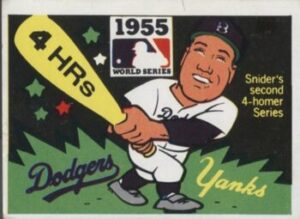
With Game Six returning to Yankee Stadium, Dodgers fans felt confident but also a little worried, and who could blame them? From 1927 to 1954, the Bronx Bombers had won an impressive fifteen World Series titles. Brooklyn fans remembered 1952 when the Dodgers led the Yankees three games to two, only to lose the final two.
Yogi Berra and Hank Bauer started the scoring for the Yankees, each hitting RBI singles. Bill Skowron extended the lead to 5–0 with a three-run homer. That was all the runs the Yankees needed as Whitey Ford pitched a complete game, allowing just four hits and one run.
With game seven tied 0–0 after three full innings, Gil Hodges drove Jackie Robinson home to give the Dodgers a 1–0 lead. The score remained the same until Hodges hit a sacrifice fly in the top of the sixth inning, scoring Reese from third base. In the bottom of the sixth, with Gil McDougald on first, Yogi Berra hit a deep fly to left field, but Sandy Amoros made a crucial catch that saved the game, resulting in a double play when McDougald couldn’t get back to first in time.
But the Yankees weren’t finished yet. They had a man on third with only one out in the bottom of the eighth, but he was left stranded. The Dodgers maintained a 2–0 lead going into the bottom of the ninth, just three outs from their first World Series win. Dodgers Manager Walter Alston chose to stick with his starting pitcher, Johnny Podres, which proved to be the right call. Podres retired the Yankees and was named the World Series MVP.
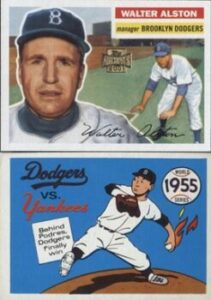
It took them six attempts, but the Dodgers finally conquered the dragon and defeated the seemingly invincible New York Yankees. The Yankees got some revenge by beating the Dodgers in the 1956 World Series four games to three.
1955 was the only year the Brooklyn Dodgers won the World Series. The Dodgers moved to Los Angeles in 1958 and won seven more World Series titles, most recently in 2024, when they beat none other than the New York Yankees.
Please Consider Sharing If You Like This Article
Mark Morthier is the host of Yesterday’s Sports, a podcast dedicated to reliving memorable sports moments from his childhood days and beyond. He grew up in New Jersey just across from New York City, so many of his episodes revolve around the great sport’s teams of the 70s for the New York area.
He is also an author of No Nonsense, Old School Weight Training (Second Edition): A Guide for People with Limited Time and Running Wild: (Growing Up in the 1970s)
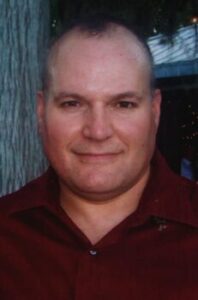
Check out Mark's Books Below
Please Note – As an Amazon Associate I earn from qualifying purchases
Resources
More From Yesterday's Sports
Muhammad Ali’s Chin: Knocked Down Only 4 Times
Muhammad Ali’s boxing career is well documented, so instead of...
Read MoreLarry Brown – Is He Hall of Fame Worthy?
A committee member recently asked me my opinion on inducting...
Read More1970s Minnesota Vikings : Would A Better QB Helped Them Win A Super Bowl?
Here’s a question I often hear, especially from Minnesota Vikings...
Read More1975 Baltimore Colts: A Year In Review
From 1957 to 1971, the Baltimore Colts never experienced a...
Read More



